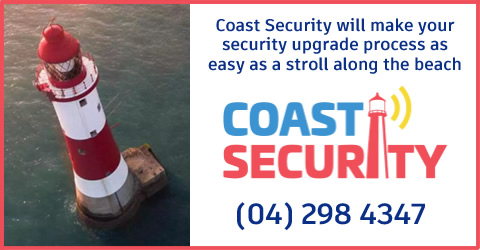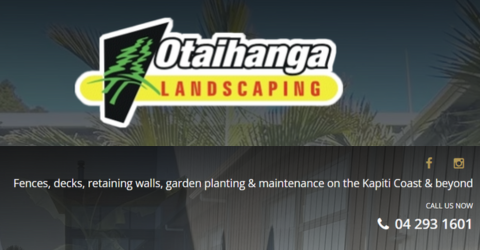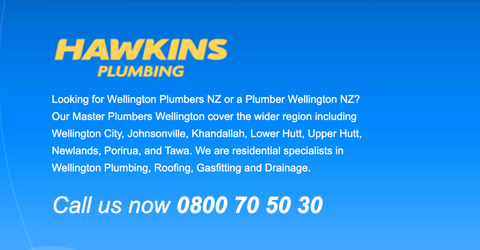
Column by Porirua City Councillor Geoff Hayward
I have been struggling to figure out how to start this column off: I’ve written and talked about this issue for the five years I have been on the council so it feels exhausting to report where we are right now. There’s an expression that seems apt: être sur le fil du rasoir – to be on the edge of a razor blade, because getting how we provide water wrong has some pretty dire consequences.
So, you’ll have to forgive me if I extend the analogy…and be blunt with you all.
The legacy of the 1989 local government reforms has a long shadow: by not dealing with the issue of how our water infrastructure would be managed properly, we are now paying the price. This isn’t some hollow reckon. The Minister responsible for those reforms said his biggest regret was “the one area we spectacularly failed to reform…the rules regarding the provision…and treatment of…water”. He said that 15 years ago.
The costs of inaction continue to mount, as councils across the country deal with the whiplash of yet another solution designed by central government. To be clear I am not opposed to reform. I am opposed to the political pawn this issue has become.
As water users, we deserve clarity, transparency, and a commitment to a sustainable and reliable system.
While progress has been made, such as addressing water leaks and investing in projects like the wastewater storage tank being built by Porirua train station, the scale of the challenge remains immense.
We must acknowledge that the status quo is simply not good enough. Wellington Water was always an organisation compromised by the laws that allowed it to exist. This is not to have a go at their staff, they seem to get a lot of abuse already, but rather it has developed a culture and bureaucratic structure that could never deal with the long term challenges.
Simply put, we collectively accepted an inherently flawed system because it suited us (and particularly those who have been paying rates for the last forty years) to have low rates and minimise our concern about the ecological impacts.
Under the previous Labour government, there was a pathway out of the muck. It wasn’t perfect, but it was so much better than what we had. As part of that pathway, Porirua went hard to get ready by increasing the amount being spent on water: renewals and repairs – because we wanted the new entity to follow our signal.
Then there was the election and the change of government. I am simply not going to cover my frustrations about this, but the main thing that happened was that this year we had to dial back our ambition on water infrastructure spending because we could no longer afford to take the path we laid out.
From this month, our Council is going to start, alongside others across the region to yet again figure out the pathway forward in the new water infrastructure regime. Here are my two cents on where we are and where we may go…
This is what I wrote four years ago: “let’s be clear, no matter who does the work, who owns it and how it is run, we are all about to pay more for the certainty of reliable water infrastructure…The question is, how to make it fairer…”
Nothing in the briefings that I have seen on this new legislation currently underway in Parliament changes that fact. Furthermore, the costs to get there have gone up…significantly as there is more data and analysis on the costs. If the expense was eye watering before, it will be eye gouging if we wait longer.
Oh, and if you are wondering about whether any council could just ignore the need to do the work to improve the network, well those days are over with an external watchdog, Taumata Arowai now over your shoulder.
Each council across the motu will be given a choice between (at least) two options, which is best described in the menu below:
- An internal business unit of council – this is probably what would have been called the water department back in the very old days;
- A single council owned council controlled organisation (CCO) – think Auckland’s watercare. They have the ability to operate due to their sheer size as the single biggest city on the motu;
- A multiple council owned CCO – the closest to status quo (Wellington Water), but with some really important differences;
- A single council community trust (I guess the closest analogy is an electricity distributor trust, like many across the country.)
- A multiple council community trust.
I think the issue for me is “how different is it really to what we have now?” So as best as I can summarise, here is what I reckon.
- Imagine for a moment that Wellington Water is no more. Staff have to go somewhere, especially those who know the pipes, pumps and systems that keep things running. They suddenly become a very valuable thing and if you were in their shoes – would you not want to be valued with a pay packet that reflects that?
And for those who know a lot about multiple locations across the region, they are now the hottest thing. Getting them employed in your organisation just became a big deal, like trying to poach players to play for your NRL team. - While it’s possible that Porirua might be able to go it alone, it also means that the debt stays with Porirua. Without a range of users like Wellington City to help even out the cost of paying for that debt, prices for water will be very high. If you hated 17.5%, you will be dreaming of it if Porirua has to pay 30% more in rates each year.
The previous three water reforms were about spreading the load across several councils to prevent this very issue. You can change governments in the beehive, but the problem still remains.
One last bit about rates because this is connected to the issue of debt. Going back to the days of the in house water department appeals to the traditionalist in me, but that option is not preferred by either this government, or the last one for that matter. So any extension of debt limits that have been announced by the government is unlikely (and I am stressing that word) to apply unless the new solution is part of an external body that shares the load with other councils. - Be careful of local politicians who say that they are worried that Porirua wont get their fair share of work done on the network. It seems to me that part of the reason this has been a problem has been because of local politicians wanting to argue the toss with specialists. While there is a need to improve transparency and accountability, let alone the need to leverage local contractors and employers better, anyone’s less than informed reckon does not trump the knowledge of someone who is trained and experienced in the area: I don’t argue with the surgeon working on my heart and I am not going to seek a second opinion with the plumber on how best to fix a toilet leaking in the middle of the night.
- Transferring the burden of water supply to an external provider is in my view a just consequence for the decades of mismanagement of water, but if there is a silver lining (and it’s not much), transferring the assets also means a significant transfer of debt from the council books, and that means less pressure on rates, at least in the short term. Council officers have little detail on this, but what they have told us is encouraging. I urge you to watch the briefing to our Council from 17 October 2024 that tries to articulate what that would mean to the rates bill.
I haven’t even had time to talk about how would a new entity charge people fairly, which is a big concern for me, but the thing I did want to finish up on (at least for now) is how do you set in stone the really big conditions, so that when the detail is finalised we don’t lose sight of how any new solution will actually be better.
I have been thinking a bit about consumer charters (for those who remember there was one when Telecom was set up as the Kiwi share), and I think that there is some value in it. Getting political support for establishing one might be challenging, but it’s better than just “hoping” that the new entity is better.
So what would that look like? Here are seven things that I would like to see in a charter:
- A commitment to hire and train locals. Any provider has to prove how it is building up and maintaining a local workforce to do the mahi. This is important for supporting local plumbers who could do repair work at small scale.
- There should be a minimum amount of water that you are able to access without being charged to use it. Prices should be charged fairly and equitably.
- No residence should be denied access to water services. Water is too important to be denied, especially over non-payment of old bills. There are ways to resolve this without trying to starve people out.
- As a consumer, you should know how the money you are charged for is implemented in your street, suburb and city. Investment decisions and performance should be transparent. It is in the public interest to know this.
- Your bill should be in plain language and show how you are being charged relative to others over time.
- What councils have called “levels of service” (for instance these mandate how quickly a repair should be carried out) should not degrade, in fact they should improve over time.
- Water quality should also improve because of the infrastructure, not degrade it.
The current model, characterised by bureaucratic hurdles and a lack of agility, has hindered our ability to effectively address the pressing needs of our community. The value of a new solution will depend on how well we navigate the sharp edge of cost, accountability and transparency.
For more from Councillor Hayward visit:
https://www.facebook.com/geoffhaywardnz
https://www.geoffhayward.co.nz





































